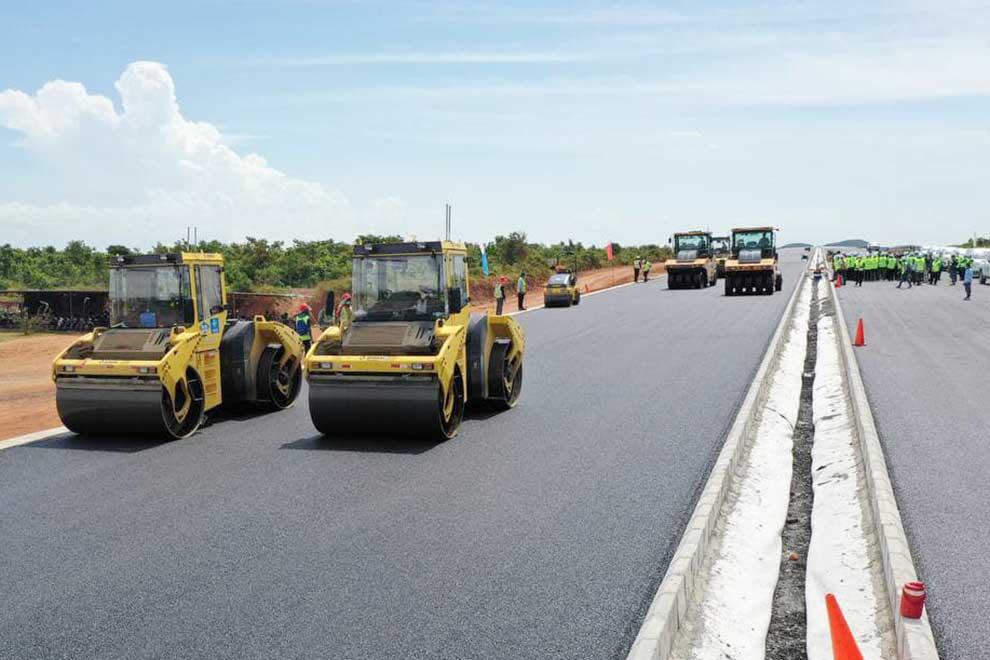
A view of the construction of Phnom Penh-Sihanoukville expressway on June 21. Public Works Ministry
The Ministry of Public Works and Transport has reached out to its Chinese counterpart for assistance in training local engineers on construction of roads, bridges and other infrastructure as the nation is developing at a fast pace but has a shortage of human resources in this sector.
The request was made during a virtual bilateral meeting between minister Sun Chanthol and Chinese Minister of Transport Li Xiaopeng on June 22.
The talks came before the second UN Global Sustainable Transport Conference scheduled for October 14-16 this year in Beijing. They also discussed building capacities of engineers.
“We ask for support and assistance in the form of many skills from our friend China. In particular, allowing professors and technicians under the China-Cambodia MoU [memorandum of understanding] on cooperation to help teach Cambodian engineers to build roads, bridges and many other infrastructure projects,” Chanthol said.
Most universities in Cambodia were not focused on this skill, he added.
According to Chanthol, some technical institutes and universities in China intended to cooperate with Cambodia’s Techo Sen Institute of Public Works and Transport to improve capacities of Cambodian engineers.
Ministry spokesman Vasim Sorya told The Post on June 23 that Cambodia has many good engineers, but the number had yet to match the country’s rapid growth.
“In fact, we have many engineers but they are old. We have many young civil engineers, but there are not many who are trained in the construction of bridges, roads and ports ... The more projects we undertake, the more human resources we lack,” he said.
He added that in general there are many institutes under the Chinese transport ministry that can train Cambodian engineers.
“We can cooperate with an institute or university in China and enter a MoU to send Chinese teachers to Cambodia or dispatch Cambodian students or teachers there to learn from them. It is our request for assistance with training,” he said.
Sorya noted that Cambodia’s Techo Sen Institute of Public Works and Transport plays a part in training people to build roads and bridges in Cambodia with currently 191 students enrolled. But the institute is still in its infancy, having been established this year.
Um Vutty, founder and honorary president of the Cambodian students’ association in China, suggested that the government incorporate Cambodian university graduates in engineering into the state framework so that they can contribute to national development.
“The government or interested ministries should offer them an opportunity to work on state projects in a special framework because they have engineering skills.
“I call on the government to encourage them to use their knowledge for development through ministries and institutions because they are good at language and techniques,” he said.
According to Vutty, more than 2,000 students are studying courses provided by universities in China, both online and in class. More than 500 students are in civil engineering and the rest are in mechanics, mine engineering, oil, roads, bridges and railroads.









